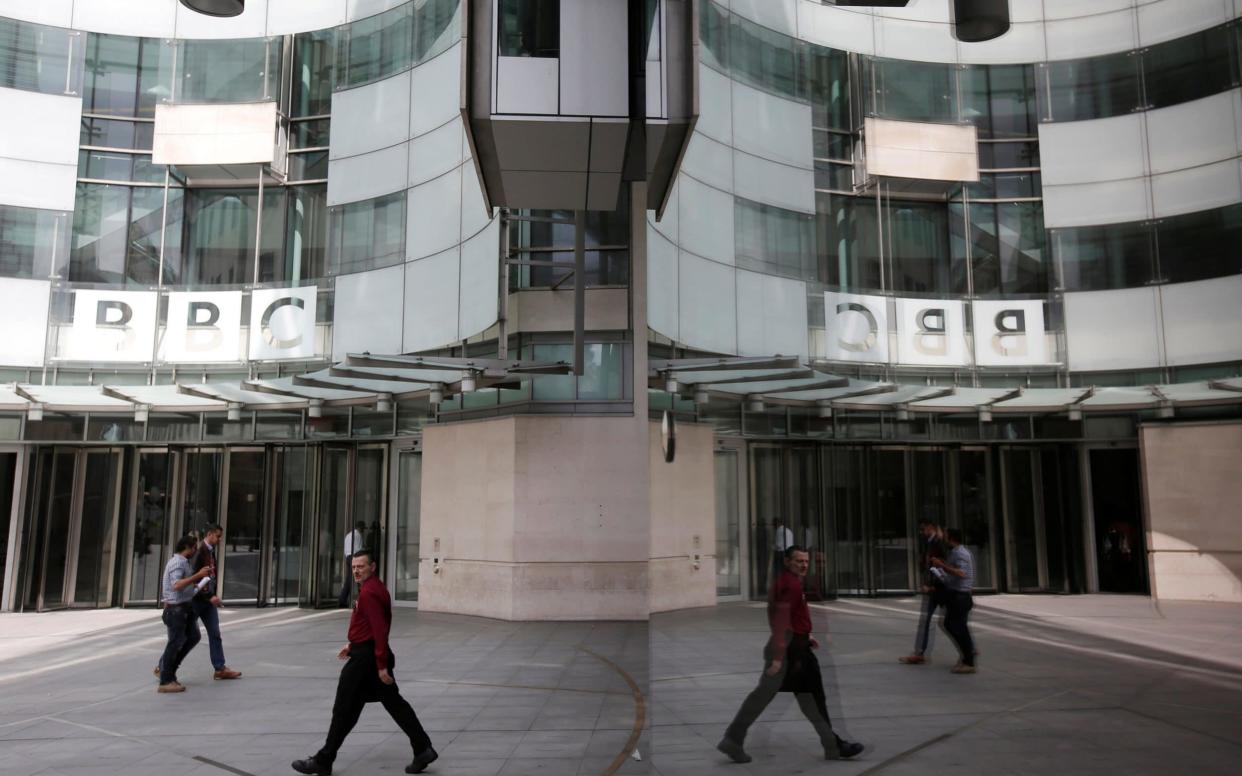BBC accused of 'missing the point' on pay review, as female employees say 'we don't trust them'

Female BBC employees have accused a review of the corporation's salaries of "missing the point".
The audit of on-air pay, carried out by PriceWaterhouseCoopers (PwC) and published today, found "no evidence of bias in pay decision-making", although added that it had identified "a number of issues in relation to pay" which it said have "resulted in anomalies that need addressing".
In its written response to the report, the BBC said that it had "set out a five-point plan to help create a fairer and more equal BBC" and said it would be implementing “substantial pay cuts for some men, and pay rises for some men and women.”
One woman employed by the BBC, however, told the Telegraph that the review “misses the point entirely.” She pointed out that the audit only covered on-air staff on news, radio, the World Service and sport, saying: “The biggest earners in entertainment aren't even included. The BBC employees 19,000 people - most of whom are not on-air. What about the off air women - many of them lower down the food chain and some who earn less than £20,000 - who can’t speak for themselves? Where is the focus on them?”
Ballsy BBC Women who have hit back over the gender pay gap row
She added: “The on-air review is supposed to generate a new pay framework. But none of these things will bring about equal pay. The BBC remains as exposed as ever through its refusal to sort this out internally and is edging towards the courts.
“It is choosing not to be transparent. Unless a proper system is put in place, it is never going to change. It's indefensible.”
In response, a BBC spokesperson said the review “was always going to look at on-air salaries only. We published two reports last year, one in October, that looked at other people at the BBC.”
In a statement responding to the audit, BBC Women - a campaign group of more than 170 broadcasters and producers - said: “The On Air Review should not be confused with an equal pay audit of all the BBC’s presenters, on-air editors and correspondents.
“It has been focused on news and news-related areas, therefore excluding some high earners. There has been no transparency on which individuals were included, or why. The BBC has chosen who to compare with whom and what factors justify any gaps in pay. The only mention of equal pay in the letter of engagement with PwC refers to an ‘assessment of equal pay risks’.
“We hope today’s commitment from the Director-General to put equality at the heart of what the BBC stands for results in swift and meaningful change for women in all roles and at all levels of the organisation.”
Gender pay gap | The BBC presenters who have agreed to a pay cut
In a written statement, in response to the PwC audit, Lord Hall - who will give evidence to a select committee on the subject of alleged pay discrimination at the BBC on Wednesday, alongside Carrie Gracie, who resigned as China editor in protest - said: "The BBC believes in equality. No one should be paid differently because of their gender.
“The BBC has a special role representing Britain. That is why we need to be, and want to be, an exemplar on gender pay, and equal pay. Today's report does not find evidence of gender bias in decision-making, but it shows that we have real and important issues to tackle, particularly in some areas of news and current affairs, and I'm determined to get it right.”
He added that the corporation had “already addressed close to half of the 230 cases raised of pay unfairness and equality by women and men - on and off air.”
But a female BBC employee said: “Lots of women have been given hasty pay ‘revisions’, but these are not resolutions in line with equal pay law. We don’t trust them.”
A BBC spokesperson told the Telegraph: “No other organisation has published more than we have about who is being paid what, even in the public sector. We’ve pledged to close the pay gap by 2020, and I’m not aware of anyone else having given that guarantee.”
A report by a group representing women at the BBC said they have faced "veiled threats" while trying to raise the subject of pay.

